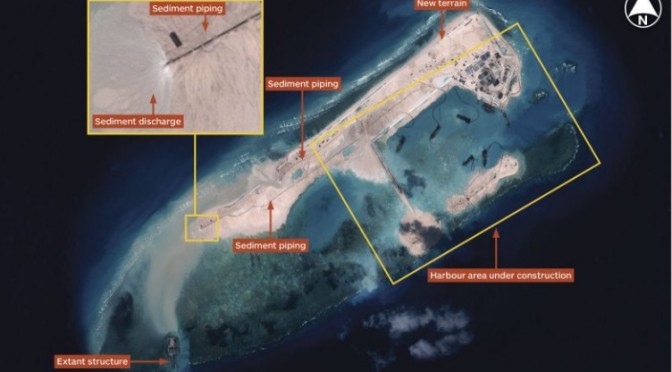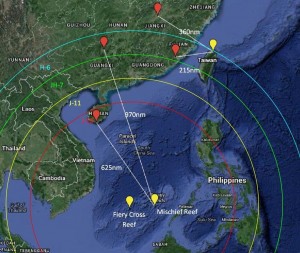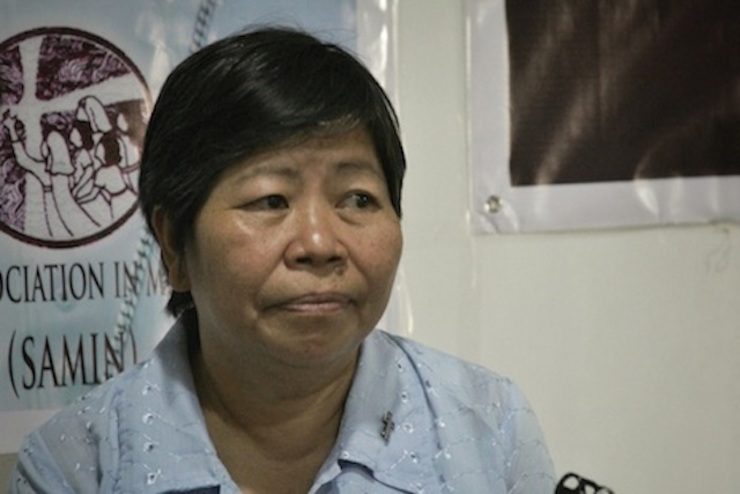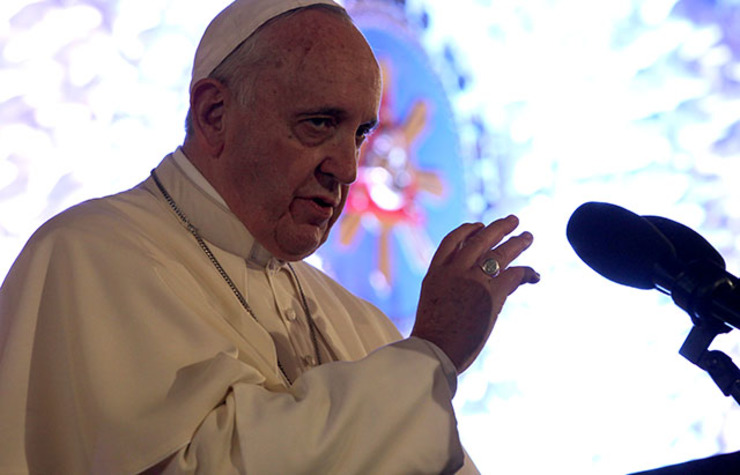From Ang Malaya (Jan 18): Government acquiring three Full Motion Flight Simulators
Three units of Full Motion Flight Simulator now among the equipment Department of National Defense is currently acquiring for the Armed Force of the Philippines. The project has an allocated budget of PhP246.4 million.
These simulators will allow military pilots to have an almost full sensory experience aiding to flight education. It will also enhance proficiency, minimize risks associated with emergency procedure training, reduce accidents, fill up downtimes and save on aircraft operational and maintenance costs – DND enumerates.
This is at least the third time DND initiated the same project. The acquisition will be through open competitive bidding. Pre-bid Conference is scheduled on January 22. Bid Opening is set on February 5.
http://www.angmalaya.net/nation/2015/01/18/7472-government-acquiring-three-full-motion-flight-simulators
The crafting of the Bangsamoro Basic Law was the result of a long and arduous process and a step closer to achieving genuine peace in Mindanao.
The Bangsamoro Basic Law is anchored basically on the Framework Agreement on Bangsamoro (FAB) and a product of long and grueling negotiations between the Government of the Philippines and the Moro Islamic Liberation Front aimed at achieving political settlement of the Moro Question;
Indeed, the FAB, and now, the BBL, has opened great opportunities to end the decades of conflict in Mindanao.
The last thing we want is to backslide from this achievement. If the true spirit of the Bangsamoro Basic Law will be weakened or even destroyed in the course of the legislative deliberations in Congress, it could lead not only to a step back from peace, but worse, it could lead us all back to zero.
Our call is to ENHANCE the BBL, rather than trimming it down nor lessening its substance and weakening its spirit.
Our call is for unconditional support to the BBL.
We firmly believe that there are no victors in war, only losers. We need peace instead of a continuing war. In peace, there is always victory, in war there are always victims. The cost of war must be translated into benefits for the Mindanao people. The Bangsamoro and the people in the Philippines and the entire world will share the peace dividends with an enhanced and enacted BBL.
The BBL has 58 executive powers and these must be enhanced rather than lessened. This is the best expression of giving genuine autonomy to the upcoming new political entity Bangsamoro. It needs the executive influence and dynamism to correct historical injustices and finally set up all the requirements for the economic and political empowerment of the Bangsamoro and its core territory.
Give the Bangsamoro the freedom to fully take into their hands the fulfillment of every Bangsamoros’ dream: the end of poverty and the start of their self-determination.
Article XII of BBL provides fiscal autonomy for the purpose of attaining higher form of economic self-sufficiency and genuine development. Is it rational and legitimate to break the cycle of economic and finance dependency from the central government so that the Bangsamoro region will stand on its own and be economically self-sufficient? Is it not right for them to beg and be always at the mercy of the central governments in terms of economic benefits and financial budgets?
Rather than look at it as demeaning the power of national government and its agencies like COA and DBM, look at it as a question of bestowing local power and self-rule to the Bangsamoro to manage, handle, develop, allocate and utilize their own local resources and, revenues towards self-sufficiency and development for the Bangsamoro and its people.
It is sufficient enough that these are all under the guidance of the national government and there is the Intergovernmental Fiscal Policy Board that will assess, monitor and guide the implementation of Bangsamoro’s fiscal autonomy.
There is, therefore, no basis for being fearful or anxious about giving fiscal autonomy to the Bangsamoro as stipulated in BBL. This provision will help the Bangsamoro people break the cycle of mendicancy, dependency and poverty and will give them a chance to chart their own economic prosperity and development.
The BBL constitutes ample basic rights provided in Article IX of the mutually agreed modified draft. This is a significant provision of the draft that clearly recognizes not only the rights of the Bangsamoro people but the rights of the indigenous ieoples, the women, the workers, the youth and other marginalized sectors of society.
Furthermore, under the BBL, indigenous peoples (IP’s) have been bestowed with rights to choose their own identity and have embraced even the rights of their fusaka inged (ancestral domain), justice system, political structures and the right to equitable share of revenues and resources from their ancestral lands. Even these basic rights given by the indigenous peoples in the said Article could be enhanced and further advanced.
The IP’s are allotted seat/s in the Bangsamoro Parliaments as well as representations in the cabinet.
The victims of injustice, the marginalized people and other sectors of society are provided with basic rights and some of these are enshrined in the Philippine 1986 Constitution.
There is no room to reduce these basic rights, but there are wide and plenty of rooms to enhance and increase further those basic and fundamental rights provided in the Article IX draft.
Hence, we officers, members and constituents of TASBIKKA categorically express our unconditional and unequivocal support to the BANGSAMORO BASIC LAW in its entirety.
We oppose any effort to trim, weaken or dilute its spirit and substance, or any of its provisions, which we believe will result to a backlash in the process to peace.
We urge members of the House of Senate and the House of Representatives to respect the provisions of the BBL and ignore efforts from anti-peace personalities to weaken the BBL.
We urge all members of both Houses to approve the BBL in its entirety and make a historical step towards achieving lasting peace in Mindanao.
The statement was signed by Abdulmaguid T. Salic, Chairman of the Board of Directors.







